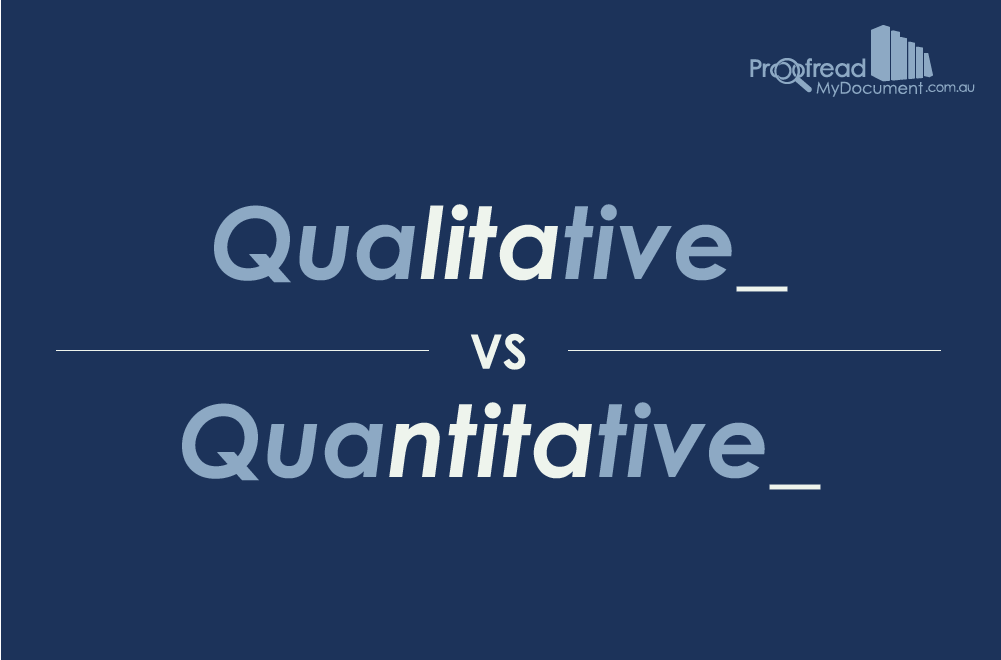‘Qualitative’ and ‘quantitative’ aren’t exactly opposites, but they do describe very different research approaches used in various academic fields. To ensure clarity, you should avoid confusing them in your work.
Unfortunately, ‘qualitative’ and ‘quantitative’ are similarly spelled and not words we typically use on a day-to-day basis. This makes it very easy to mix them up. Luckily, we’re here to explain how ‘qualitative’ and ‘quantitative’ should be used.
Qualitative (A Matter of Quality)
The term ‘qualitative’ comes from the word ‘quality’, reflecting how qualitative research is interested in the subjective meaning or qualities of that which is being investigated.
It’s therefore a common approach in the human and social sciences, like sociology or anthropology, where understanding human motivations is crucial:
To investigate how subjects perceive purchase decisions, a qualitative approach was chosen.
Common qualitative methods include interviews, focus groups, direct observation and case studies; as a result, qualitative data is non-numerical.
Quantitative (A Matter of Quantity)
In the same way that ‘qualitative’ concerns quality, the term ‘quantitative’ comes from the word ‘quantity’. As such, quantitative research is interested in things that can be quantified numerically.
Quantitative approaches are dominant in many fields, from the sciences to business studies, especially those in which statistical analysis is applied:
To determine projected expenditure, quantitative analysis was applied to the account data.
Find this useful?
Subscribe to our newsletter and get writing tips from our editors straight to your inbox.
Quantitative research methods aim for objectivity, so either use sensitive measuring instruments to gain accurate data (as in chemistry or biology) or numerical data gathered via things like polls, surveys and questionnaires (as in psychology, market research or sociology).
Qualitative or Quantitative?
The first issue here is knowing what kind of approach you’re using in your work. If you’re focusing on the meaning of human action or social trends, you’ll usually need to use a qualitative approach.
On the other hand, if you’re looking for objective, statistical information about something, your investigations will normally use quantitative methods.
Many studies also mix these approaches to some extent, but knowing the difference between the different research approaches within your project is still crucial.
Once you have a good sense of the type of research you’re conducting, it’s simply a matter of keeping the distinction between ‘qualitative’ and ‘quantitative’ in mind. Remember:
Qualitative (quality) = Concerned with subjective experience and human understanding
Quantitative (quantity) = Concerned with measurable numerical data and statistical analysis
